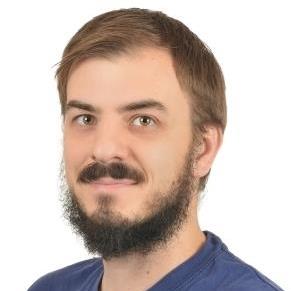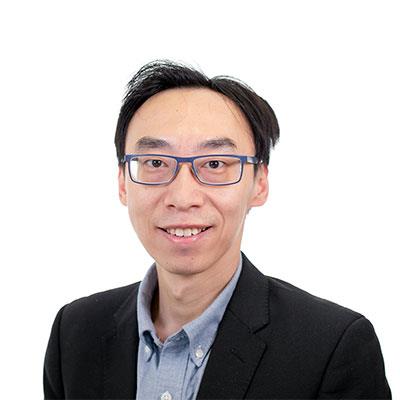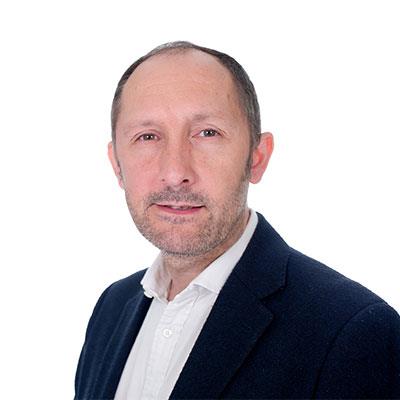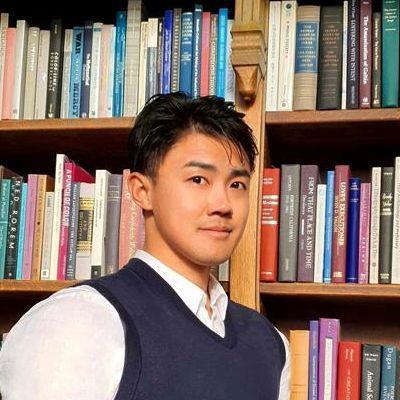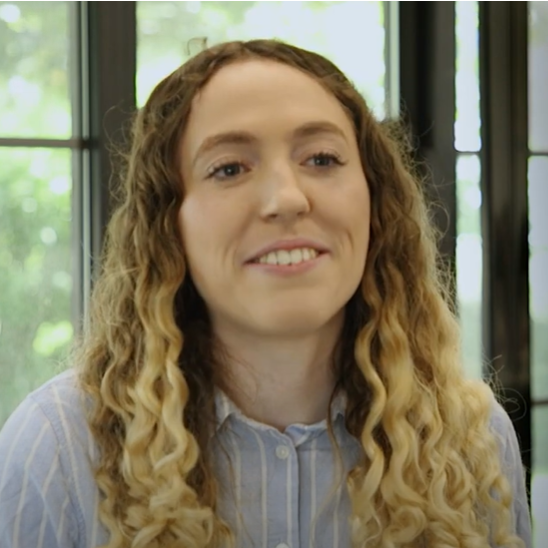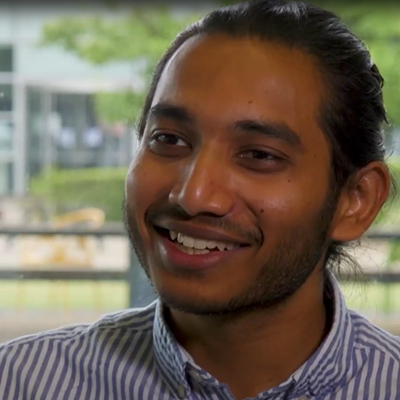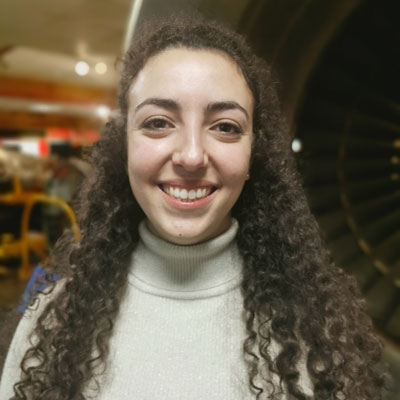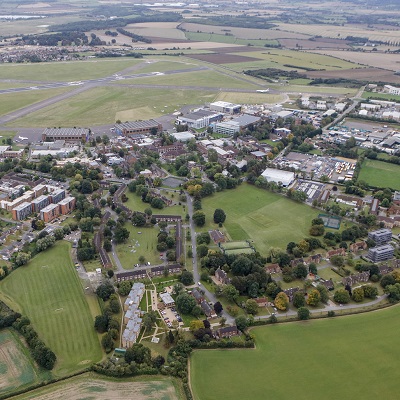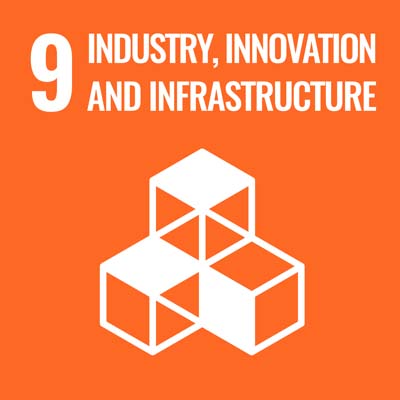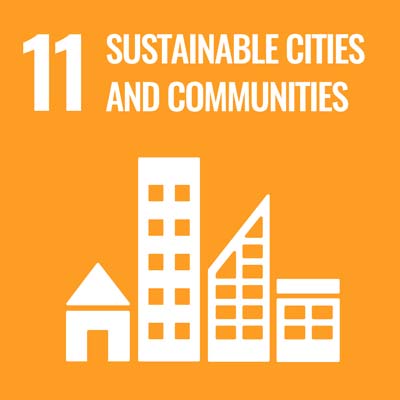Ways to meet us
Be part of the mechanical engineering drive to a sustainable future
The Advanced Mechanical Engineering MSc is designed to prepare you for a successful mechanical engineering career leading large, complex projects. You will learn state-of-the-art mechanical engineering methods, apply them to real world problems via industrially focused modules and research projects, whilst gaining the essential management skills to bring your ideas to life. Ranked in the UK top 5 for mechanical engineering, Cranfield offers a unique, postgraduate-only environment, with near-industrial scale engineering facilities and a teaching team with extensive experience of solving real world issues within industry.Overview
- Start dateFull-time: October. Part-time: October
- DurationOne year full-time; two-three years part-time
- DeliveryTaught modules 80 credits/800 hours, Group projects 40 credits/400 hours, Individual project 60 credits/600 hours
- QualificationMSc, PgDip, PgCert
- Study typeFull-time / Part-time
- CampusCranfield campus
Who is it for?
This course is designed for engineering, physics or mathematics graduates who wish to develop a successful mechanical engineering career in industry, government or research. It will equip you with the advanced engineering and management skills demanded by leading global employers, including project management, design, computer-aided engineering, operation and optimisation of machinery, structural mechanics and integrity, and technology leadership.
Your career
This course has been designed to provide you with engineering skills and experience which are transferable to the sector of your choice, including energy, aerospace, automotive or manufacturing. Our focus is on ensuring that you can make an impact from day one in your career. We do this by teaching you the state-of-the-art skills in mechanical engineering, enabling you to apply what you learn through industrially relevant group and individual research projects and equipping you with technology leadership skills.
Graduates of this course have gone on to work in a range of roles, including:
- Mechanical Design Engineer at Siemens,
- Production Line Supervisor & Lean Implementer at GKN Land Systems,
- Staff Engineer at BPP Technical Services Ltd working on offshore oil and gas engineering,
- Engineer at Det Norske Veritas,
- Management Associate at BMW Group UK Limited,
- Project Engineer at BASF Coatings S.A.
Cranfield Careers and Employability Service
Cranfield’s Career Service is dedicated to helping you meet your career aspirations. You will have access to career coaching and advice, CV development, interview practice, access to hundreds of available jobs via our Symplicity platform and opportunities to meet recruiting employers at our careers fairs. Our strong reputation and links with potential employers provide you with outstanding opportunities to secure interesting jobs and develop successful careers. Support continues after graduation and as a Cranfield alumnus, you have free life-long access to a range of career resources to help you continue your education and enhance your career.
Why this course?
By combining advanced mechanical engineering topics, with a thorough underpinning in the management skills required to lead large, complex projects, this course will prepare you for a successful career.
- Study at a top 5 ranked UK university for mechanical, aeronautical and manufacturing engineering,
- Develop your technology leadership capabilities with the world-renowned Cranfield School of Management,
- Participate in individual and group projects focused on your personal interests and career aspirations,
- Learn from lecturers with extensive, current experience of working with industry on solving real world mechanical engineering challenges,
- Benefit from near-industrial scale facilities for project work in energy and power, aerospace, automotive, transport and manufacturing.
This MSc is supported by our team of professorial thought leaders.
Informed by Industry
The Advanced Mechanical Engineering MSc is closely aligned with industry to ensure that you are fully prepared for your career:
- Cranfield’s long-standing strategic partnerships with prominent players across numerous sectors ensures that the course content meets the current needs of global employers,
- The teaching team are heavily involved in industrially funded research and development, enabling you to benefit from real-world case studies throughout the course,
- Engineering modules are state-of-the-art, covering a range of topics including structural mechanics and integrity, design, computer-aided engineering, materials and corrosion, operation and optimisation of machinery, and project management,
- A dedicated ‘Engineering Project Management’ module develops the essential management skills required by employers,
- Student projects are often linked to the department’s industrially-funded research – ensuring relevance to employers,
- The course is accredited by the Institution of Mechanical Engineers and The Energy Institute.
The Advanced Mechanical Engineering MSc course is developed alongside an Industry Advisory Panel, with representatives from commercial and non-commercial organisations. Please find the panel members below:
- Dr Emad Marashi BSc MSc PhD PMP CEng MICE, Senior Principal Structural Engineer, Kent Engineering & Consulting, UK
- Dr Andrew Peplow BSc MSc PhD MIOA, Principal Acoustics Consultant, Hawkins & Associates, UK
- Dr Francesco De Cola, Head of Performance Workflow, MC Laren Racing
- Paul Walker, Head of SGT Materials, Siemens, UK
- Mr. Rafal Chylinski, Engineering Delivery Team Leader, Airbus, UK.
Course details
The taught element of the course comprises of eight modules and is delivered between October and February.
Modules are delivered over two weeks, in the early part of the year, the modules cover the fundamentals of advanced mechanical engineering. These are intensive weeks, consisting of all day teaching. During this period, there are some weeks which are largely free of structured teaching to allow time for more independent learning and reflection, completion of assignments or exam preparation.
After the winter break there are three modules that involve more active problem-based learning and typically include practical or laboratory sessions, case studies or group work. These are an opportunity for you to apply and integrate your knowledge. These modules are all assessed by assignments that are completed during the two-week period. The focus on group work and application within these modules provides a valuable transition into the Group Project.
Course delivery
Taught modules 80 credits/800 hours, Group projects 40 credits/400 hours, Individual project 60 credits/600 hours
Group project
The group project runs from late February until early May and enables you to apply the skills and knowledge developed during the taught modules. It provides you with direct experience of bringing knowledge to bear on an industrially relevant problem that requires a team-based multidisciplinary solution. You will develop a fundamental range of skills required to work in a team including team member roles and responsibilities, project management, delivering technical presentations and exploiting the variety of expertise from each individual member. Industry involvement is an integral component for the group project, to give you first-hand experience at working within real life challenging situations.
In recognition of the fact that the modern design engineer cannot be divorced from the commercial world, you will provide a presentation and poster. This provides the opportunity to develop presentation skills and effectively handle questions about complex issues in a professional manner. All groups submit a written report and deliver a presentation to the industry partner.
Part-time students are encouraged to participate in a group project as it provides a wealth of learning opportunities. However, an option of an individual dissertation is available if agreed with the Course Director.
Recent group projects include:
- Preliminary design of an offshore floating wind turbine,
- Multi-disciplinary design of a high speed marine vehicle with aerodynamic surfaces,
- Design optimisation of the drive train for a vertical axis wind turbine,
- Conversion of consumer waste plastic into new plastics,
- Design specification of pilot scale 142 kWth air/rock,
- Thermodynamic modelling of using Ca-based sorbents for heavy metal emission control during contaminated biomass combustion,
- Conceptual and preliminary design of a SPAR for a 5 MW VAWT,
- OpenO&M: Optimising availability of floating wind turbines for increased safety,
- Investigation of severe slugging in pipelines.
Individual project
The aim of the individual research project, which takes place between May and August, is to provide you with direct experience in undertaking a research/development project in a relevant industrial or research area. It therefore offers the opportunity to apply your knowledge and skills and focus your interests in a particular area of interest. You will submit a research thesis and make a formal presentation of your findings to a panel of academics and industry experts.
For part-time students it is common that their research thesis is undertaken in collaboration with their place of work and supported by academic supervision.
Recent individual research projects include:
- Comparison of a panel method and Reynolds averaged Navier-Stokes (RANS) method to estimate the aerodynamic coefficients of a profile flying in ground effect,
- The stress shielding effect of cracks in loaded components,
- Review and modelling of heave and roll motion passive damping systems for offshore floating support structures for wind turbines.
Modules
Keeping our courses up-to-date and current requires constant innovation and change. The modules we offer reflect the needs of business and industry and the research interests of our staff and, as a result, may change or be withdrawn due to research developments, legislation changes or for a variety of other reasons. Changes may also be designed to improve the student learning experience or to respond to feedback from students, external examiners, accreditation bodies and industrial advisory panels.
To give you a taster, we have listed the compulsory and elective (where applicable) modules which are currently affiliated with this course. All modules are indicative only, and may be subject to change for your year of entry.
Course modules
Compulsory modules
All the modules in the following list need to be taken as part of this course.
Artificial Intelligence for Sustainability
| Aim |
|
|---|---|
| Syllabus |
|
| Intended learning outcomes |
On successful completion of this module you should be able to:
|
Assessing Risk and Failure
| Module Leader |
|
|---|---|
| Aim |
|
| Syllabus |
|
| Intended learning outcomes |
On successful completion of this module a student should be able to: Assess and analyse appropriate approaches to the collection and interpretation of data, this will be illustrated through the example of critically evaluating analysis and corrosion monitoring techniques to select appropriate methodologies. Evaluate the impact of corrosion on the mechanical responses of structural materials and the impact of inhibition techniques on extending life Evaluate and select appropriate techniques and tools for qualitative and quantitative risk analysis and reliability assessment Analyse and evaluate failure likelihood and potential consequences, and develop solutions for control/mitigation of risks Discuss the role of codes and standards |
Component Design
| Module Leader |
|
|---|---|
| Aim |
This is a specialised module to advance your technical skills in industry prototyping design processes. This module will also introduce you to the facilities/workshops available at Cranfield. |
| Syllabus |
Design thinking and creativity, Collaborative innovation, Understanding the value and use of prototyping for innovation, Introduction to technology readiness levels (TRL’s), How to identify and write good requirement for design, Hands-on use of professional CAD/CAE software, Design skills workshops (sketching, CADCAE, mechatronics, 3D printing), Knowledge of advanced materials and processes (smart materials, bio-inspiration, nano & micro technologies, additive manufacturing). |
| Intended learning outcomes |
On successful completion of this module you should be able to: Prepare and write design specification requirements for a new product, service or system. Formulate, plan and build low fidelity prototypes using design best practice and agile innovation techniques. Critically evaluate industrial best practice tools and techniques for converting an idea into commercially viable solutions. Assess the value of technology readiness levels used as an innovation process. Examine creatively within a multi-disciplinary team using self and group reflective techniques. |
Computational Fluid Dynamics for Renewable Energy
| Module Leader |
|
|---|---|
| Aim |
To appraise existing Computational Fluid Dynamics (CFD) techniques and tools for modelling, simulating and analysing practical engineering problems related to renewable energy, with hands on experience using commercial software packages used in industry. |
| Syllabus |
|
| Intended learning outcomes |
On successful completion of this module you should be able to:
|
Engineering Design and Project Management
| Module Leader |
|
|---|---|
| Aim |
|
| Syllabus |
Project Management, |
| Intended learning outcomes |
On successful completion of this module you should be able to:
|
Principles of Engineering
| Module Leader |
|
|---|---|
| Aim |
|
| Syllabus |
You will cover a number of fundamental aspects of engineering, applied to sustainable development systems. This will include applications in the energy, water and environmental sectors, thus will focus on sustainable development goals and the net zero targets. Topics covered throughout the module will include: |
| Intended learning outcomes |
On successful completion of this module you should be able to:
|
Engineering Stress Analysis: Theory and Simulations
| Module Leader |
|
|---|---|
| Aim |
This module brings together theories and computational practicalities of Finite Element Analysis (FEA). This combination enables you to use FEA for modern engineering purposes, whilst understand the underlying mechanics. You will be provided with step-by-step ABAQUS tutorials to get familiar with basic and advanced functionalities of this finite element software package. The lectures and hands-on practice will help you to develop strong FEA skills such as investigating the stress and strain distribution in complex geometries, components, and structures. |
| Syllabus |
Theory Introduction to stress analysis of components and structures, Ductile and brittle materials, Tensile test, Material properties, Complex stress and strain, Stress and strain transformation, Fracture and yield criteria, Plastic deformation, Introduction to Computer-Aided Engineering, FEA methodology, FEA procedure. Fluid-structure interactions. Simulation Introduction to ABAQUS, Types of elements, Integration points, Meshing, Mesh convergence, Visualisation, Results interpretation, Beam structures under static and dynamic loading, stress concentration in steel and composite plates, tubular assemblies, 2D and 3D modelling of solid structures, axisymmetry and symmetry boundary conditions, Stress and strain analyses subjected to different loading conditions, Prediction and validation of the stress and strain fields ahead of the crack tip. |
| Intended learning outcomes |
On successful completion of this module you should be able to:
|
Fluid Mechanics and Loading
| Module Leader |
|
|---|---|
| Aim |
This module aims to provide you with a theoretical and applied understanding of fluid mechanics and fluid loading on structures. |
| Syllabus |
Principles of fluid dynamics: Dynamics of floating bodies: from simple hydrostatics to complex dynamic response in waves.
|
| Intended learning outcomes |
On successful completion of this module you should be able to:
|
Teaching team
You will be taught by industry-active research academics from Cranfield with an established track record, supported by visiting lecturers from industry. To ensure the course is aligned to industry needs, the course is directed by its own Industrial Advisory Committee.
Admissions Tutors are Dr Mostafa Ranjbar and Dr Stefano Mori.
Course Director is Dr Mostafa Ranjbar.
Accreditation
This MSc course is accredited by: The Institution of Mechanical Engineers (IMechE) on behalf of the Engineering Council as further learning for CEng until August 2026.
Candidates must hold a CEng accredited BEng/BSc (Hons) undergraduate first degree to comply with
full CEng registration requirements. Students completing an accredited degree are deemed to have met part or all of the academic requirements for registration as a Chartered or Incorporated Engineer and are in a strong position to move on to achieve professional engineering status after a period of initial professional development in industry.Please note accreditation applies to the MSc award, PgDip and PgCert (if offered) do not meet in full the further learning requirements for registration as a Chartered Engineer.
How to apply
Click on the ‘Apply now’ button below to start your online application.
See our Application guide for information on our application process and entry requirements.
Cranfield has a lot of proper industrial connections with industrial experts as well as the various process industries, industry providers in technology, which belong to the energy category.
Right now, we are in the phase of the group project and are getting to see a lot of industrial expert engagement. We are having research collaborations with various labs, and we get to use and explore all the facilities available at Cranfield.
I have been part of a sponsored project by Network Rail, for my group project. So that was a good achievement, because getting a sponsored project is very competitive.
Having a sponsored project means that you get real life experiences, you get to see what is happening in the industry.
The highlight for me was definitely the group project – working in relation to wind turbines. We studied a new component used in the base and the foundations of wind turbine structures and it was just a fantastic experience. I worked with some really great fellow students and took on a bit of a leadership role that I found I really enjoyed.
The highlight of my course has been the amount of friends that I have made here. Also, the amount of skills that I've developed and the amount of networking opportunities that I've got being a Cranfield student. My advice to future students – make the most of what you have at Cranfield.
I am very happy with my time at Cranfield so far because in addition to learning different cultures, different and complementary ways of learning, this course has given me a real deepening of my scientific knowledge applied in the field of energy. In addition, the lecturers are real experts in their field. They provide high-level training and advanced research on materials, structures and implementation processes for energy and power.
The highlight for me was me individual research project. It was about rapid prototyping and 3D printing. As part of the project, I was able to build my knowledge around rapid prototyping and use the 3D printing machines.

